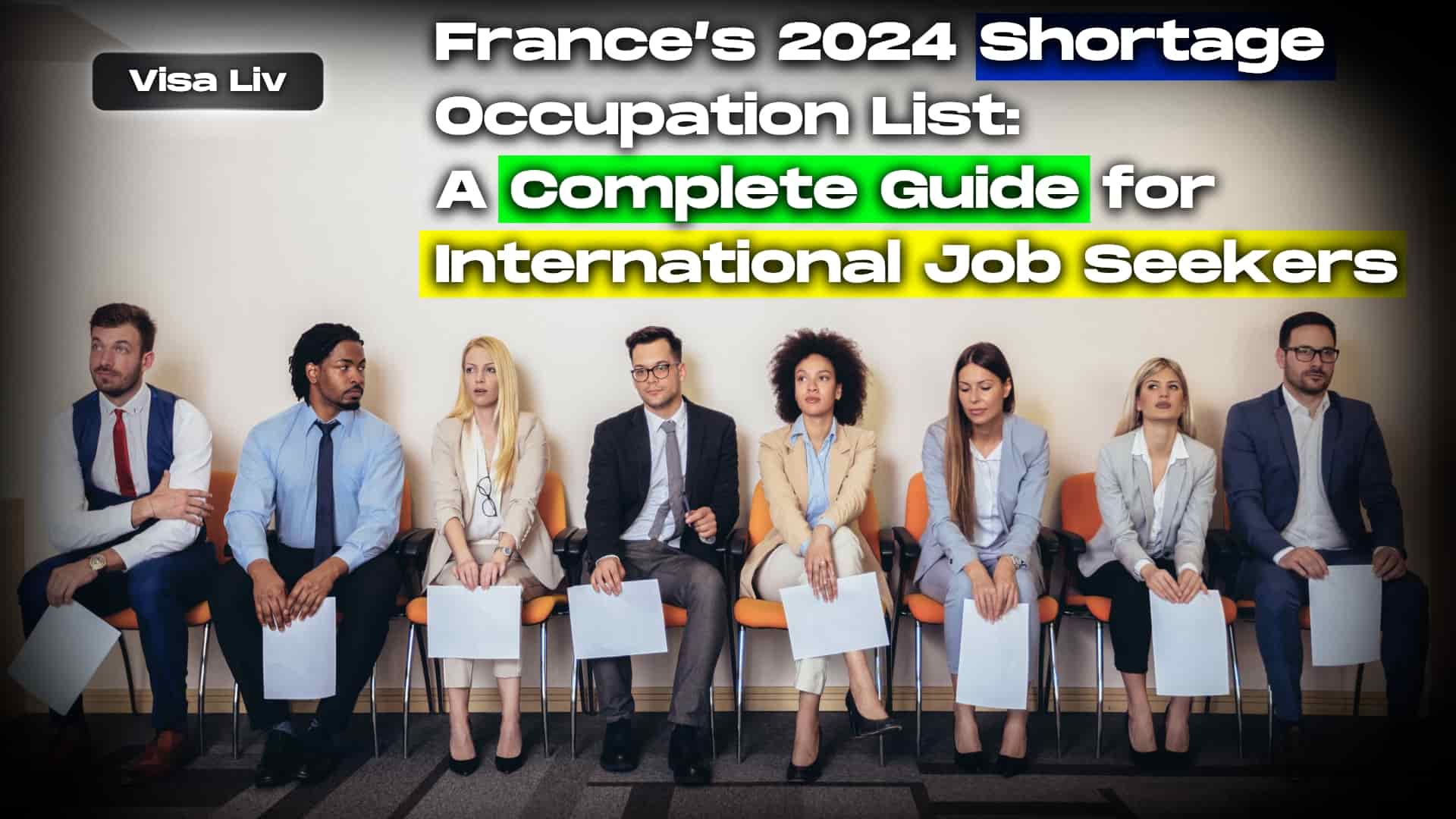If you’re considering moving to France for work, it’s essential to understand the country’s Shortage Occupation List. This list highlights the professions that are in high demand across various industries, making it easier for foreign workers to secure employment in France.
What is the Shortage Occupation List?
France’s Shortage Occupation List, also known as “Liste des Métiers en Tension,” identifies jobs that face a significant labor shortage. These professions are prioritized for hiring foreign workers due to the difficulty employers face in finding suitable candidates within the country.
Why is the List Important?
For international job seekers, the Shortage Occupation List offers a clear path to finding employment in France. If your profession is on this list, you are more likely to receive a work visa, as employers are encouraged to recruit from abroad to fill these gaps.
Key Professions on the List
The list includes a wide range of professions across different sectors. Some of the key areas with high demand include:
- Healthcare: Doctors, nurses, and other medical professionals.
- Engineering: Civil, mechanical, and electrical engineers.
- Information Technology: Software developers, cybersecurity experts, and IT managers.
- Construction: Skilled trades such as electricians, plumbers, and carpenters.
- Hospitality: Chefs, hotel managers, and restaurant staff.
Step-by-Step Guide to Applying for a Job in a Shortage Occupation
- Research the Shortage Occupation List
- Visit the Shortage Occupation List to check if your profession is listed.
- Understand the specific requirements and qualifications needed for your job category.
- Assess Your Qualifications
- Ensure your qualifications are recognized in France. You may need to have your credentials evaluated by French authorities or professional bodies.
- Obtain any necessary certifications or licenses required to practice your profession in France.
- Improve Your Language Skills
- Proficiency in French can significantly improve your chances of securing a job. Consider taking French language courses to enhance your communication skills.
- Some employers may require a certain level of French proficiency, so be prepared to demonstrate your language abilities.
- Search for Job Opportunities
- Use job portals, recruitment agencies, and networking to find job openings in your field. Websites like Pôle Emploi and LinkedIn are excellent resources.
- Attend job fairs and networking events to connect with potential employers and learn about available positions.
- Prepare Your Application
- Tailor your resume (CV) and cover letter to match the job requirements and highlight your relevant skills and experience.
- Provide references and any supporting documents that may strengthen your application.
- Apply for the Job
- Submit your application through the employer’s preferred method, whether it’s online, via email, or in person.
- Follow up with the employer to ensure your application has been received and to express your continued interest in the position.
- Prepare for the Interview
- Research the company and practice common interview questions. Be ready to discuss how your skills and experience align with the job.
- Prepare to discuss your ability to relocate to France and your long-term career plans.
- Secure a Work Visa
- Once you receive a job offer, apply for a work visa through the French consulate or embassy in your home country.
- Provide all required documents, including your job offer letter, proof of qualifications, and a valid passport.
- Be prepared to demonstrate that you meet the financial and health requirements for living in France.
Benefits of Working in a Shortage Occupation
Working in a shortage occupation in France offers several benefits:
- High Demand: Increased job security due to high demand for your skills.
- Competitive Salaries: Potential for higher wages and better working conditions.
- Career Growth: Opportunities for career advancement and professional development.
- Cultural Experience: Living and working in France allows you to experience its rich culture and lifestyle.
Conclusion
Understanding and leveraging France’s Shortage Occupation List can be a game-changer for your career. By targeting high-demand professions, you can increase your chances of obtaining a work visa and securing a rewarding job in France. Whether you’re in healthcare, engineering, IT, construction, or hospitality, there’s a place for your skills in the French job market.

